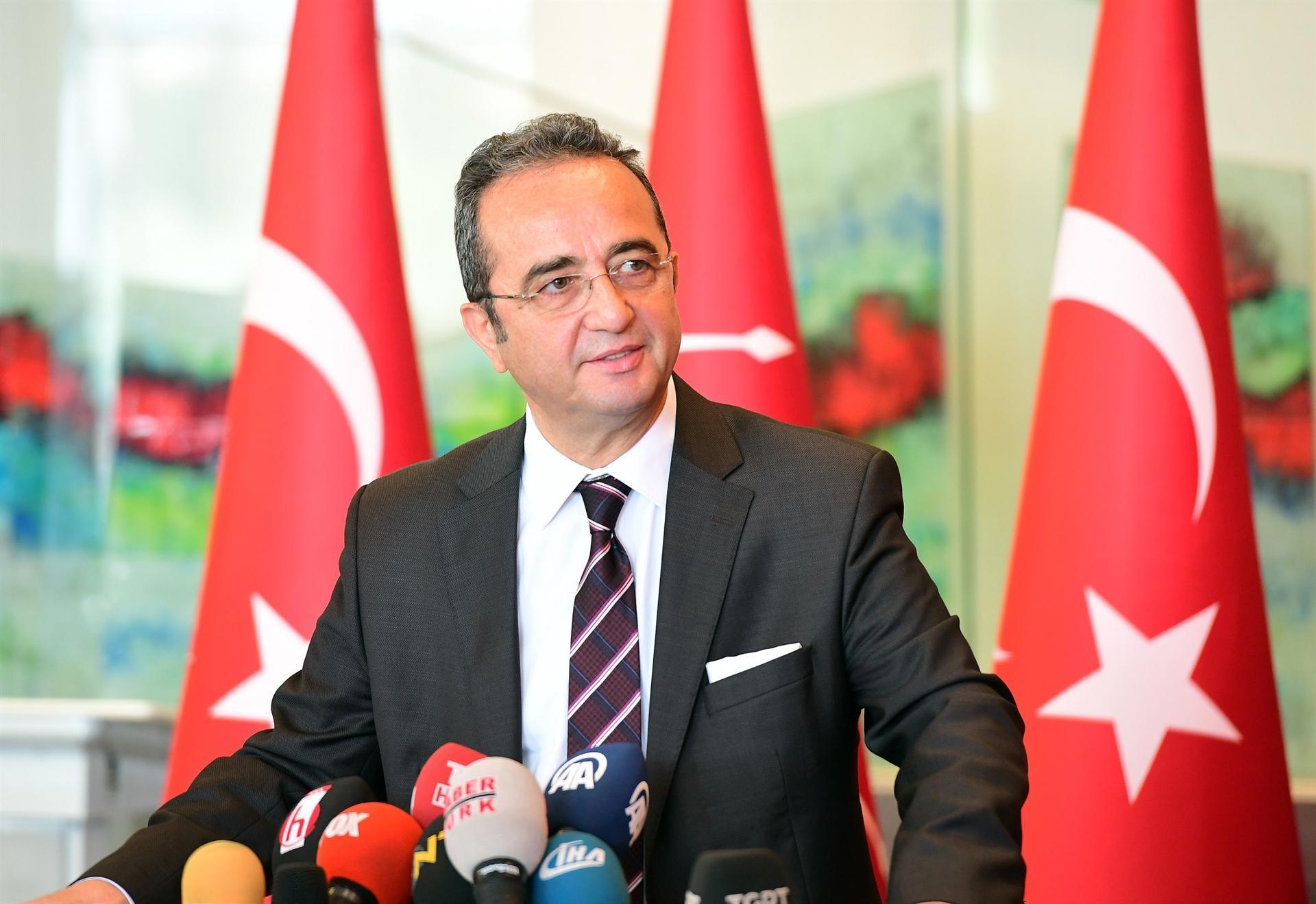
Main opposition Republican People’s Party (CHP) spokesperson Bülent Tezcan has responded to claims that Turkish Chief of General Staff Gen. Hulusi Akar and presidential spokesperson Ibrahim Kalın have visited former President Abdullah Gül to convince the latter not to run for the presidency, stating the possible visit amounts to “military tutelage.”
“It is a very serious allegation, a very grave allegation. But it has been understood that such a visit has evidently happened. Such an assignment has occurred. It means the situation is very serious,” Tezcan said at a press conference on April 27.
“It means they are so concerned about the future that they attempt to engineer politics under the tutelage of the military,” he added.
His comments came amid speculations that Akar and Kalın had visited Abdullah Gül, the former president and prime minister, in order to convince him not to run in the presidential elections.
Tezcan said the CHP had received the rumors from the political “backstage” in Ankara, stating that a news channel had already published the story online. However, it deleted the story afterwards as daily Hürriyet columnist Deniz Zeyrek had hinted at a possible visit on April 27, without giving specific names.
“What business does the Chief of General Staff and presidential spokesperson have in speaking with a person whose name is among those discussed as a candidate? Why would the Chief of General Staff be sent to convince that individual not to be a candidate?” said the spokesperson.
“We face political engineering under the tutelage of the military. It means that a new Feb. 28 is emerging and [President Recep Tayyip] Erdoğan is attempting to stage a new Feb. 28,” he added, referring to the 1997 military memorandum, which is also known as the “post-modern coup.”
The military memorandum of Feb. 28, 1997 did not result in direct military rule but forced the Welfare Party (RP) leader Necmettin Erbakan to resign from the office of prime minister, ending his coalition government.
The ruling Justice and Development Party (AKP) has built an important part of their political discourse over Feb. 28, arguing that the ruling party will “end political tutelage in Turkey.”
“It is a serious picture for Turkey, for the AKP base, for all those who had expressed their concern over Feb. 28, saying they have been against military tutelage for years,” Tezcan said.
“There will be polls on June 24, why you are involving the military within this process?” he said.
Tezcan criticized the 20-month state of emergency rule in Turkey as a “civil coup.”
“Has the military leg of the July 20 coup been built?” said the spokesperson.